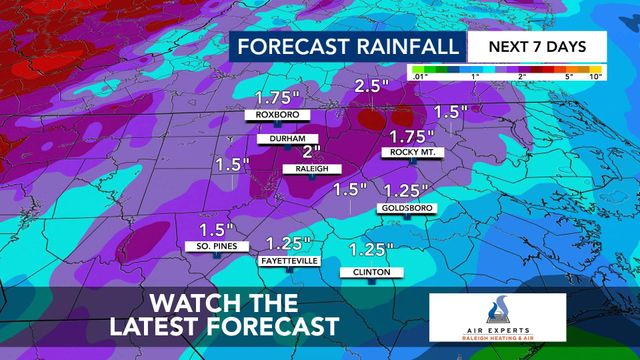Fed Chair Powell: The ‘time is coming’ for a rate cut
New York (CNN) — Federal Reserve Chair Jerome Powell said the time is coming for interest rate cuts, but asked Americans for a bit more patience in the central bank’s fight against inflation.
The US economy is strong and the central bank will likely lower later interest rates later this year, he said, but it’s just “not likely” to happen this March, as Wall Street once expected it to.
“We’ve said that we want to be more confident that inflation is moving down to (the Fed’s target rate of) 2%,” Powell said in an interview that aired Sunday on CBS’ “60 Minutes.” “I think it’s not likely that this committee will reach that level of confidence in time for the March meeting, which is in seven weeks.”
Powell last appeared on the program in April 2021, about 11 months before the central bank began a two-year regimen of aggressive interest rate hikes to fight accelerating inflation rates.
The Fed’s benchmark lending rate is currently at a 23-year high, but a policy pivot appears imminent. The Fed held interest rates steady last week for its fourth-straight policy meeting and rate cuts are expected sometime this year.
Price hikes have eased substantially in recent months, inching closer to the Fed’s 2% target. That means the Fed is due to cut rates in 2024, which officials themselves projected in December. But the central bank’s January policy statement pushed back on expectations of the first rate cut coming at their next meeting in March.
Powell emphasized that sentiment in his post-meeting news conference last Wednesday, saying “there was no proposal to cut rates,” and that cutting in March is “probably not the most likely case.”
Powell echoed that view on Sunday. “Our confidence is rising. We just want some more confidence before we take that very important step of beginning to cut interest rates,” he told “60 Minutes” correspondent Scott Pelley.
Still, financial markets see a 20% chance the Fed will cut rates in March and a 71.3% chance they cut in May, according to the CME FedWatch Tool.
“Of course we pay attention to markets and we understand what’s going on in financial markets around the world,” said Powell of the mismatch between Wall Street and policymakers’ views.
“I can’t overstate how important it is to restore price stability, by which I mean inflation is low and predictable and people don’t have to think about it in their daily lives,” Powell said. “In their daily economic lives, inflation is just not something that you talk about. That’s where we were for 20 years. We want to get back to that, and I think we are on a path to that. We just want to kind of make sure of it.”
Economic woes
The US economy is growing faster than Wall Street expected, adding a stunning 353,000 jobs last month, with consumer sentiment high, market indexes soaring and inflation ebbing. It now appears that a “soft landing,” where price rises are tamed and the economy manages to avoid recession, is possible.
“It’s historically unusual,” Powell said of rates falling without an economic downturn. “I would say there’s always a possibility of a recession at any given time. But I wouldn’t say that that possibility of a recession isn’t all elevated right now.”
Powell struck an optimistic tone on the overall state of the economy. “The economy’s strong. The labor market’s strong. Inflation’s coming down. There’s no reason why that can’t continue,” he said.
But the Fed Chair also noted that many Americans continue to feel the pinch of still-high grocery prices and inflated rents.
“If you think about the basic necessities, things like bread and milk and eggs and meats of various kinds, if you look back, prices are substantially higher than they were before the pandemic,” he said. “We think that’s a big reason why people have been relatively dissatisfied with what is otherwise a pretty good economy.”
Getting political
The Federal Reserve has an independent relationship with the US government, meaning it does not receive funding through the congressional budgetary process. Members of the Board of Governors are also appointed for 14-year terms to limit political influence.
But that hasn’t stopped Congress from pressuring Powell to cut rates.
Democratic Sen. Sherrod Brown, the chairman of the influential Senate Banking Committee, wrote a letter to Powell last week urging the Fed to cut rates “early this year.”
Brown wrote that it is “becoming increasingly evident that restrictive monetary policy is no longer the right tool for combating inflation.”
The letter from Brown came just days after Democratic Sen. Elizabeth Warren blasted the Fed for making housing inaffordability worse.
“We do not consider politics in our decisions. We never do. And we never will,” Powell said. “Integrity is priceless. And at the end, that’s all you have. And we plan on keeping ours.”
Adding politics to the mix, said Powell, who has worked for the Fed through three previous presidential elections, would limit the central bank’s ability to achieve a soft landing.
“It’s not easy to get the economics of this right in the first place. These are complicated, you know, risk-balancing decisions,” he said. “If we tried to incorporate a whole other set of factors in politics into those decisions, it could only lead to worse economic outcomes. So, we simply don’t do that, and we’re not going to do it.”
The-CNN-Wire™ & © 2024 Cable News Network, Inc., a Warner Bros. Discovery Company. All rights reserved.









